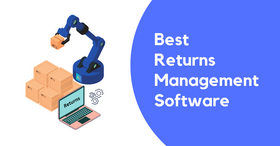Leveraging Personalization AI in Your E-Commerce Marketing Strategy
Published August 31, 2022

Personalization in marketing is very important for one good reason: research has proven that it works! One of the biggest differences between e-commerce and brick-and-mortar stores is that you don't get to engage with your clients face to face, and e-commerce removes that personal touch.
The most effective strategy to address this challenge is personalization AI—the central link between digital marketing and e-commerce. Personalization AI includes valuable information about your clients, such as their demographic information, sales trends, browsing data, and sales data.
Thanks to AI content marketing, you can now personalize your content on a large scale. What's more, you can do it yourself and don't need professional technical skills to get it right.
Read on as we explain how this can be done.
How to Leverage AI to Personalize Your E-Commerce Marketing Strategy
AI information can be used in various ways when it comes to personalization. Here are five key use cases:
1. Recommend Products Effectively
Personalized recommendations get generated using an algorithm that tracks browsing history. This is then compared to other customers' pre-sales behavior.
For example, if a customer adds a gown to their shopping cart on an online clothing store, the recommendations may suggest pajamas or slippers. This is because the algorithms identify that a gown, slippers, and pajamas are often purchased in one sale.
2. Offer Personalized Content and Sales Incentives
A simple example of this is sending customers a birthday card on their birthday with a discount voucher or buy-one-get-one-free offer.
You could do this for anniversaries or even special celebratory days like Mother's Day. These incentives could also be seasonal, for instance, free sunscreen with every order in the month before summer.
3. Implement Geo-Location Targeting
The old expression "location, location, location" is very relevant to an e-commerce business's marketing strategy. There's no sense in sending a customer a discount voucher for a webinar when that webinar will be presented in a language that is not common to their location.
This strategy is called geo-location targeting and helps clients see you as a local company.
4. Send Personalized Emails
Sending personalized emails is undoubtedly one of the top email marketing best practices. Personalized emails include general marketing emails—nudge emails for those who abandon their carts before making a purchase or list emails for those who keep items on their wish list for a set amount of time.
Personalized communication can also take the form of thank-you emailers with extra product information on an item that has just been purchased or an e-commerce Black Friday email marketing strategy based on the customer's purchase history. The list is endless—you just need to be creative.
5. Implement a Live Chat Box on Your Site
Add a picture of the person your client is "chatting" to, and they will feel right at home on your website.
Before you argue that paying someone to run the chat box is expensive, think about the pros: your website bounce rate will decrease, your customer loyalty will improve, the average size of your customer order will increase, and your return rates will decrease.
Why? Because your customers are getting what they are looking for.
Benefits of AI for E-Commerce Marketing Strategies
You may be wondering exactly what the advantages of AI are in advertising and marketing. Employing AI in your e-commerce marketing strategy will:
- Boost sales As previously mentioned, ongoing research has proven that personalization AI boosts sales. In fact, it can be argued that without personalization AI, your store will not keep up with its competitors.
- Increase return on investment When your sales are boosted, it goes without saying that your return on investments will increase in the same way. Say no more!
- Bridge the gap between you and your customers Personalization is the link between an online store and its customers. It is a gap that must be bridged, and personalization can do that—albeit not in the same way as a brick-and-mortar store. Different but the same!
- Build customer loyalty When your clients see that you are offering a personalized service that works, you will build customer loyalty.
- Build long-lasting relationships with your customers This is very similar to customer loyalty, except that it defines the timeline as long term.
- Increase customer retention Again, research has proven that you spend less money on maintaining your customers compared to new customer acquisition costs in e-commerce. So if you want to retain clients, personalization AI is your ticket!
Beat the Competition With Personalization AI
There are many more strategies that you could explore with personalization AI and various other benefits that have not been covered in this blog. Look at what your competitors are doing, and then make sure you are one step ahead.
You'll soon be an e-commerce influencer with your marketing strategy—and a successful one at that.







